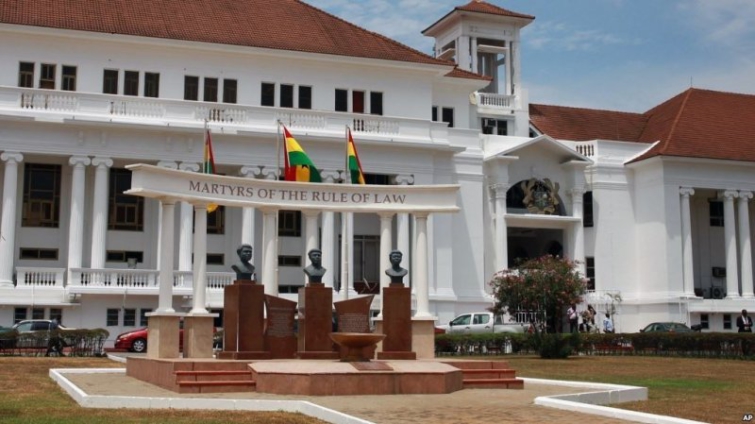No progress in the law, or in society generally, has ever come from those who insist on a blind, often self-interested, allegiance to the status quo in the name of custom, tradition, or precedent.
You cannot pretend to believe that the law, whether common law or the Constitution, is a living organism, yet insist on an uncritical fidelity to "precedent", especially one laden with technicality, even when the times and contexts and values have (presumably) changed or don't apply.
Today, in many jurisdictions, including those self same sources from where we have borrowed our formal legal system and traditions, innovation in the law, including in judge-made law, in response to changing social and institutional realities and dynamics is a constant.
One familiar legal device that has been used quite innovatively, by both legislative and judicial policymakers in serious societies and states, to address particularly difficult social problems and challenges (eg., grand corruption, money laundering) is the placement and shifting of "presumptions" between parties.
By the use of this legal device, some states and judicial systems have managed to wrestle down, for example, organized crime through non-conviction based asset forfeiture and unexplained wealth laws and proceedings.
These developments have taken place even in criminal cases, where, unlike in a civil or public law case, the defendant faces a real prospect of imprisonment and consequential loss of liberty. And this, in the legal cultures from which we get all our hallowed propositions and axioms and like "innocent until proven guilty", "he who alleges must prove", et cetera, et cetera.
Those jurisdictions are using the law to move their societies forward, while still upholding a commitment to freedom, while we, the consummate borrowers that we are, use borrowed law to tie ourselves up in knots in the name of precedent.
Can the precedent-worshippers tell me what exactly Ghana would lose by a court ruling that said that, in the exceptional case of presidential election petition, where the petitioner is able to proffer some evidence that irregularities and illegalities were committed by the electoral commission, the onus would fall on the EC, or the EC may be compelled, to show that, even if the allegations were admitted, the errors or infractions would not affect or change the results?
You might say that, such a rule, by seemingly lowering the evidentiary bar for the petitioner, would encourage frivolous presidential election petitions. So what? So what if we got one frivolous presidential election petition (which would fail, of course) once every four years?
Wouldn't that be a better social outcome than having no election petition at all because election contestants would now shun the courts and prefer, instead, to fight violently to win at polling stations and collation centers or else turn to violent protests after they have lost?
What is wrong, in such a context as this, with asking that the one public official who is charged by law with declaring the election results and who has official custody of all the relevant documentary evidence, must show to the whole world, at no risk to his or her personal freedom, that the declared results, contrary to the petitioner's allegations, are as they are and as they ought to be.
Isn't that a better social outcome, in a political community struggling to build trust in its institutions, than having a significant portion of the population believe, rightly or wrongly, that the EC is politically captured or that a certain election was rigged?
Is having the Returning Officer for the presidential elections testify under oath in such a proceeding going to cause some irreparable damage to our system of justice and accountability? What exactly is the social cost here? Especially when we can do this without changing the applicability of our hallowed precedents to all other cases to which they must apply.
Law is a problem-solving tool; a tool for solving social problems. It is but a means to an end, not an end in itself. Or, as the Scriptures render it, the Sabbath (law) was made for Man (society), not Man for the Sabbath. (Mark 2:27).
If all the law and legal institutions can do is erect impenetrable walls in defense of the status quo, all in the name of precedents crafted in different contexts, then they will have failed to understand and appreciate the social purpose, role, and value of law. Being doctrinaire about precedent has never advanced society or the law anywhere.
The iconoclastic Lord Denning did not become the venerated legend in the common law that he is by insisting on slavish adherence to precedent, come hell or high water!
I rest.
Latest Stories
-
Six houses belonging to herdsmen torched in Gomoa Amenfi over farm dispute
2 hours -
Int’l. Islamic Youth League, African Youth Devt. Centre supports Muslim community during salah celebrations
2 hours -
Kumasi fire: A/R Minister halts creation of new lorry terminal after fire
2 hours -
Vanuatu Trade Commissioner to Ghana Amb. Prof Hugh Keku Aryee wins ‘Best in AI Innovation’ award
3 hours -
Anlo-Afiadenyigba Youth Council congratulates Wisdom Seade on Keta MCE nomination
3 hours -
Gov’t undertakes initiative to prevent conflicts in Volta Region – James Gunu
3 hours -
Suhum Children’s Hospital in distress; ‘Love Without Walls’ to the rescue
3 hours -
The death of a legend of legends – Teddy Osei of Osibisa
3 hours -
Ja Rule tours National Museum ahead of Nuaso school commissioning
3 hours -
Agotime-Kpetoe market women protest NDC’s failure to appoint female DCE
3 hours -
Anas Aremeyaw Anas’ investigative film, “Invisible Hands” streams on Delta Airlines
3 hours -
Ghana Month series: Exploring the evolution of Ghana’s currency
3 hours -
Howo Max Tractor launches in Ghana
4 hours -
Stakeholders meet in Keta to address illegal fishing practices in Volta region
4 hours -
Mustapha Gbande applauds Mahama’s commitment to completing Agenda 111 hospitals
4 hours

